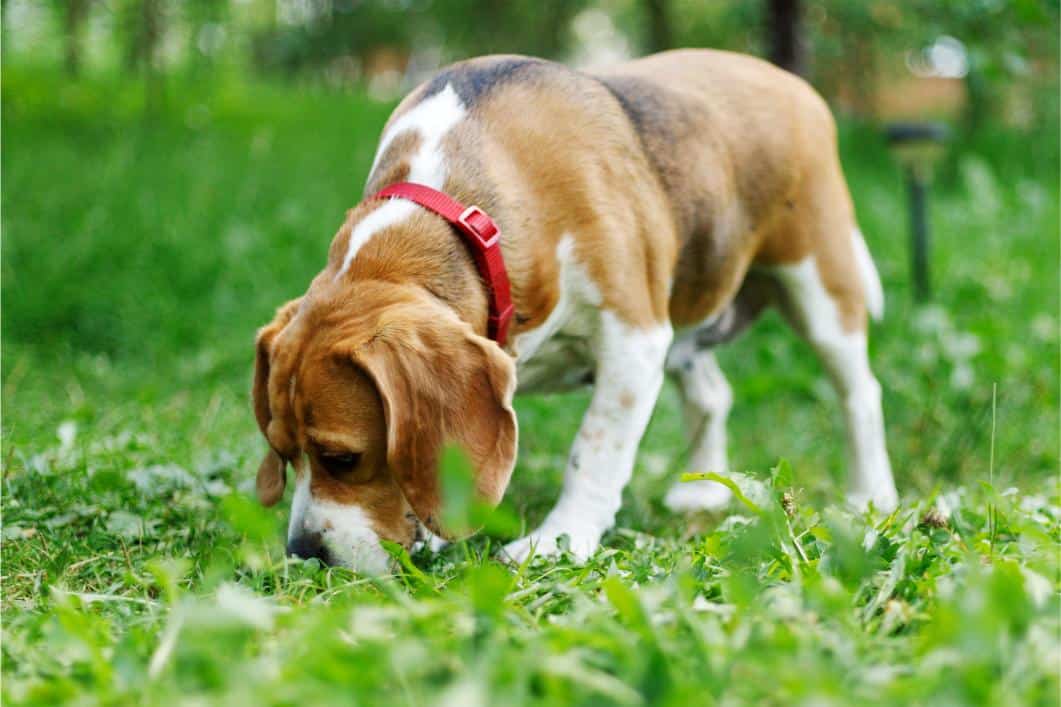Why Do Dogs Eat Poop?

If you’ve ever caught your dog snacking on something in the yard and realized—with horror—that it wasn’t a stick or a treat, you’re not alone. As surprising (and gross) as it may be, poop-eating is a common behavior in dogs. At The Bark Park Pet Resort & Daycare, we’re here to help you understand why your pup might be dabbling in this unsavory habit—known as coprophagia—and what you can do to put a stop to it.
What Is Coprophagia, and Why Does It Happen?
Coprophagia is the technical term for eating feces. While it’s disgusting to us, dogs often have their own reasons for doing it. Some of the most common explanations include:
- Instinctual behavior: Mother dogs lick their puppies clean, which includes ingesting their waste. Some dogs may carry this instinct into adulthood.
- Puppy curiosity: Young pups explore the world with their mouths, and unfortunately, that sometimes includes poop.
- Scavenger tendencies: Dogs are natural scavengers, and some will eat just about anything they come across.
- Attention-seeking: Dogs that crave interaction may engage in this behavior if they notice it gets a big reaction from their owners.
While these reasons don’t make the habit less gross, they do shed some light on your dog’s curious behavior. Understanding what’s driving your pup to partake in poop snacks is the first step toward helping them kick the habit—for good!
Could It Be a Dietary Deficiency?
Some dogs may turn to poop-eating because they’re missing something in their diet. If your pup isn’t getting the nutrients they need, their body might push them to seek out alternative “sources.” Possible dietary deficiencies that could lead to coprophagia include:
- Lack of digestive enzymes
- Insufficient vitamins, such as B12
- Poor-quality food that doesn’t meet their nutritional needs
If you suspect a dietary issue, it may be time to consult with a vet to assess your dog’s nutrition and make adjustments as needed.
Behavioral Causes: Not Just About Food
Even well-fed, healthy dogs might indulge in this habit due to behavioral factors. Some of the most common non-dietary reasons for coprophagia include:
- Learned behavior: If a dog sees another dog doing it, they may pick up the habit, much to their owner’s dismay.
- Stress and anxiety: Dogs experiencing stress, particularly those from puppy mills or neglectful backgrounds, may resort to poop-eating as a coping mechanism.
- Boredom: A lack of mental and physical stimulation can lead to odd behaviors, including eating things they shouldn’t.
- Fear of punishment: Dogs that have been harshly disciplined for accidents in the house may eat their own poop to “hide the evidence.”
As strange as it seems, poop-eating isn’t always about what’s missing from the food bowl—it can be rooted in your dog’s emotions or environment. Whether it’s stress, boredom, or habits picked up from a rough start in life (as is often the case with puppy mill dogs), these behavioral causes are surprisingly common. The good news? With a bit of insight and the right support, this messy habit doesn’t have to stick.
How to Stop Your Dog From Eating Poop
If your dog has taken up this habit, don’t panic—there are several ways to curb the behavior. Try these strategies:
- Keep their living space clean: Scoop the poop as soon as possible so they don’t have the opportunity to eat it.
- Enhance their diet: Make sure they’re getting high-quality, nutrient-rich food. Ask your vet if enzyme supplements or probiotics could help.
- Increase mental and physical exercise: A mentally stimulated dog is less likely to develop odd behaviors.
- Teach “Leave It”: Training your dog to respond to the “leave it” command can help deter them from snacking on unwanted items.
- Use deterrents: Some pet-safe sprays and supplements can make feces taste even more unappetizing (yes, that’s possible!).
With patience and consistency, you can help your pup break the habit.
A Five-Star Stay for Your Four-Legged Friend
At The Bark Park Pet Resort and Daycare, we provide attentive, top-tier daycare and boarding in a clean, enriching environment—because your dog deserves the best (and the cleanest!) experience possible. We even offer dog spa services! You can count on our team to treat your pup like family. Give us a call at (916) 459-3030 to book your dog’s next stay with us.
